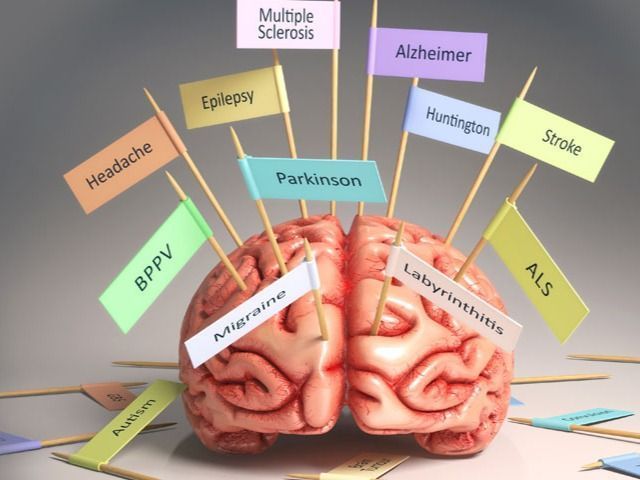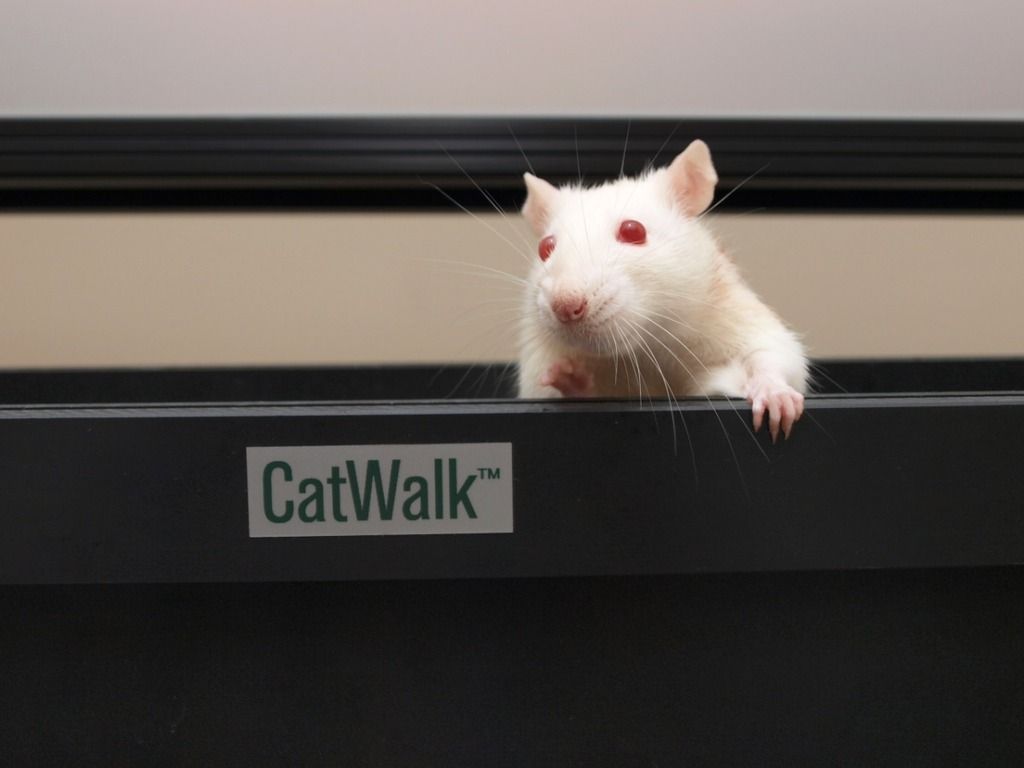A plant-based treatment for Alzheimer's disease?

Researchers are constantly looking for new ways to treat Alzheimer's disease. Can Dioscin, a plant-based steroid, decrease the symptoms in mice?
Posted by
Published on
Fri 10 Mar. 2023
Topics
| Alzheimer's Disease | CatWalk XT | Cognitive Neuroscience | Morris Water Maze |
Alzheimer’s is a neurodegenerative disease afflicting more than 30 million people over the world (WHO). Since Alzheimer’s disease (AD) affects not only the physical state of a patient but also the mental state, it is a very difficult disease for patients and their close ones to deal with. Moreover, there is currently no cure for AD, and the detection of the disease is often late, in terms of pathology, since recognizable symptoms do not immediately arise. Researchers are therefore constantly looking for new ways to treat AD and this blog will cover an animal study that assessed whether or not Dioscin could be used for treating Alzheimer’s disease.
Alzheimer’s disease in a nutshell
While dementia can take many forms, AD is by far the most common variant and contributes to roughly 60-70% of cases (WHO). As a neurodegenerative disease, Alzheimer’s has a major effect on brain activity. It impacts many brain functions from memory and communication, to more motor function related areas coordinating movement and swallowing.
The definitive way AD develops it still unknown. But one hypothesis is that plaques and tangles appear in the brain formed by amyloid beta plaque deposition (extracellular) and neurofibrillary tangles (intracellular). Amyloid beta plaques disrupt neuron to neuron signalling, can trigger an immune response and therefore induce inflammation. The neurofibrillary tangles disable neuron function leading to apoptosis. These two processes cause the brain to shrink and thus impair brain function.
Currently there is no cure for AD. There are treatments that can improve life quality of AD patients but these solutions often come with many side effects (like nausea, lowered heartbeat insomnia and weight loss). Therefore, it is worth looking into new methods for treating AD.

What is Dioscin?
As a natural steroid derived from plant extracts, Dioscin has been a part of traditional Asian medicine for quite some time. Dioscin can be extracted from the rhizomes of plants in the Dioscorea genus, a genus that also includes yams. Dioscin works by activating or suppressing certain pathways by bringing about structural changes on a nuclear level. It does this by attacking mitochondria, modifying gene expression, and targeting diseased tissue. Dioscin has shown to be able to complement the functioning of certain types of medication while suppressing some negative effects that medication might cause.
Many studies have been done to assess the pharmacological benefits of Dioscin. From anti-inflammatory to anticancer and neuroprotective effects; Dioscin has shown many potential uses. Dioscin has even shown to be able to help in multi-drug resistance by inhibiting the expression of certain proteins. Most of these studies were done in vitro or in vivo in animal models, thus not much can be said about the clinical use of Dioscin at the moment. However, Dioscin does show potential due to its low toxicity. If you want to read more about the applications Dioscin check out the following papers [1,2].
But how would Dioscin help in alleviating symptoms of Alzheimer’s Disease? Research has demonstrated that Dioscin has certain neuroprotective properties. It has the ability to regulate neuro-inflammation and alleviate the activation of glial cells (which are often abnormal in AD patients). However, the true mechanisms are poorly understood. Therefore, a study was conducted by Guan et al. to test whether Dioscin could improve brain and motor function in AD challenged mice [3].
Can Dioscin alleviate AD symptoms?
For this study, 80 male C57BL/6 mice were divided into multiple groups (multiple levels of Dioscin, a model group exhibiting AD symptoms and a control group, given donepezil). These mice were then tested to see if Dioscin mitigated the effects of AD on spatial memory (using a morris water maze) and physical coordination (using the CatWalk XT).
CatWalk XT is a complete system that enables automatic gait and locomotion analysis. During a trial, the footprints of an animal are detected using illuminated footprint technology, and the software automatically records and analysis the data. Lastly, to find out the exact workings of Dioscin several biochemical tests were conducted.
Improved cognitive function
So, then the question arises, does Dioscin help alleviate AD symptoms? Interestingly, multiple effects of Dioscin were found. Mice that were treated with Dioscin indeed showed an improved cognitive function and better limb balance when compared to model mice. The footsteps of mice were disorganized in the model group, which is characterized by a variable stride size and abnormal gait. However, Dioscin distinctly improved the gait pattern. Moreover, escape latency out of the water maze was improved significantly when the mice were exposed to Dioscin.
Measuring the behavior of these animals is key in getting a more complete understanding in these types of studies.

Mediating the RAGE pathway
But how does Dioscin cause these beneficial effects? The researchers contribute the effects of Dioscin on the mediation of RAGE. This doesn’t mean that they went to anger management. RAGE, or receptor for advanced glycation end-products, is a multiligand receptor that mediates inflammation but also induces oxidative stress. RAGE has also been shown to facilitate the transport of amyloid beta into the brain across the blood brain barrier. Lastly, RAGE seems to be linked to the formation of reactive oxygen species (ROS), which in turn leads to oxidative stress.
The results from the study done by Guan et al. showed that Dioscin is able to down-regulate the RAGE mediated pathway that lead to neuroinflammation and oxidative stress. This resulted in less damage to the brain and the maintained motor and cognitive functioning, as was seen in the behavioral tests.
So what’s next?
This unfortunately doesn’t mean that we can start given every AD patient a treatment with Dioscin. There is currently a lack of information regarding clinical safety of the usage in humans. However, studies like this one are an essential starting point for developing treatments and testing new compounds. If this work continuous, we will hopefully be able to improve the life of AD patients, and possibly look towards a cure in the future.
References
1. Yang, L.; Ren, S.; Xu, F.; Ma, Z.; Liu, X.; Wang, L. Recent Advances in the Pharmacological Activities of Dioscin. BioMed Res. Int. 2019, e5763602, doi:10.1155/2019/5763602.
2. Bandopadhyay, S.; Anand, U.; Gadekar, V.S.; Jha, N.K.; Gupta, P.K.; Behl, T.; Kumar, M.; Shekhawat, M.S.; Dey, A. Dioscin: A Review on Pharmacological Properties and Therapeutic Values. BioFactors. 2022, 48, 22–55.
3. Guan, L.; Mao, Z.; Yang, S.; Wu, G.; Chen, Y.; Yin, L.; Qi, Y.; Han, L.; Xu, L. Dioscin Alleviates Alzheimer’s Disease through Regulating RAGE/NOX4 Mediated Oxidative Stress and Inflammation. Biomed. Pharmacother. 2022, 152, 113248, doi:10.1016/j.biopha.2022.113248.
Related Posts

Can caffeine prevent Alzheimer's?

How memory loss caused by diabetes was prevented in transgenic mice

